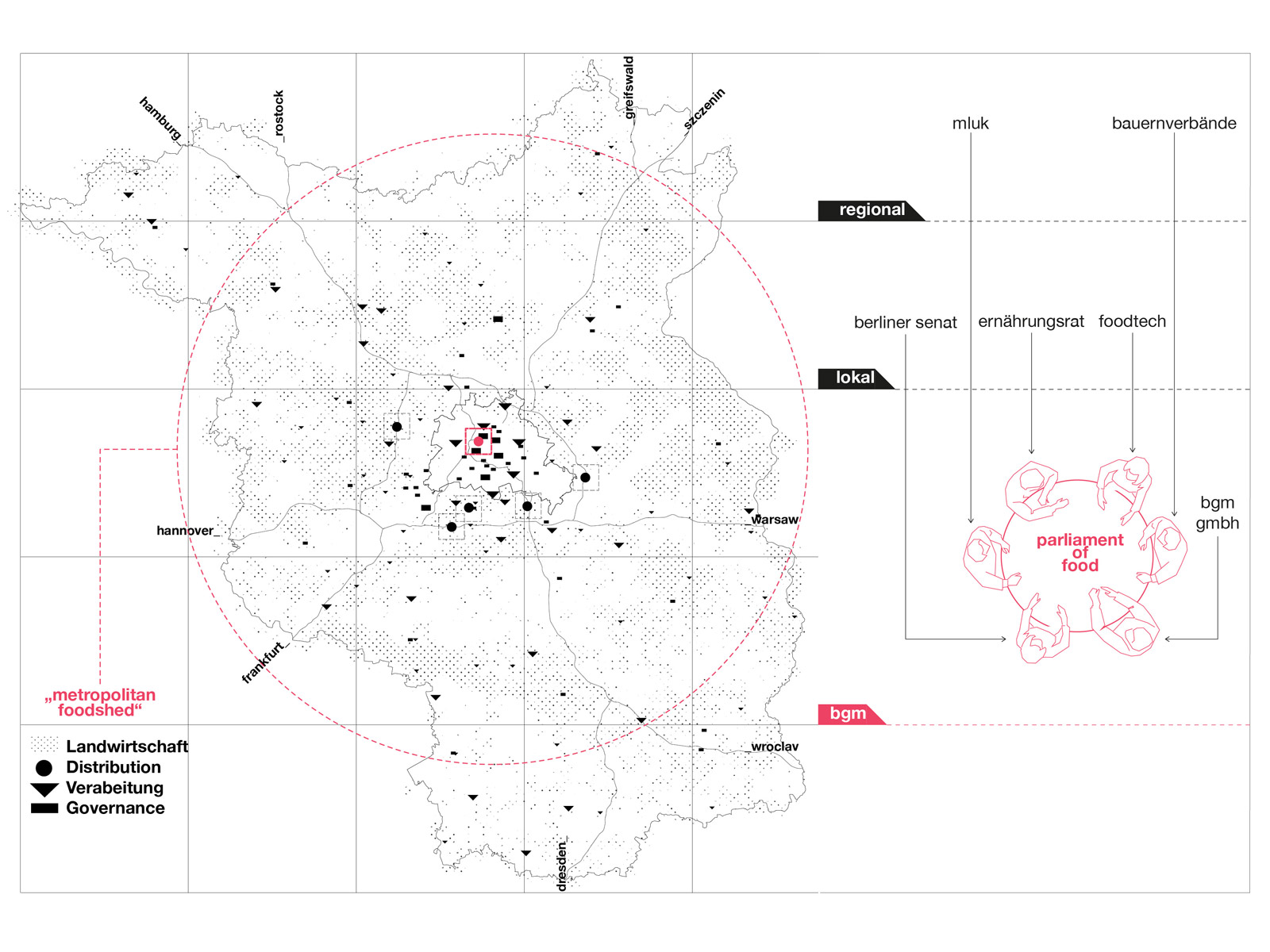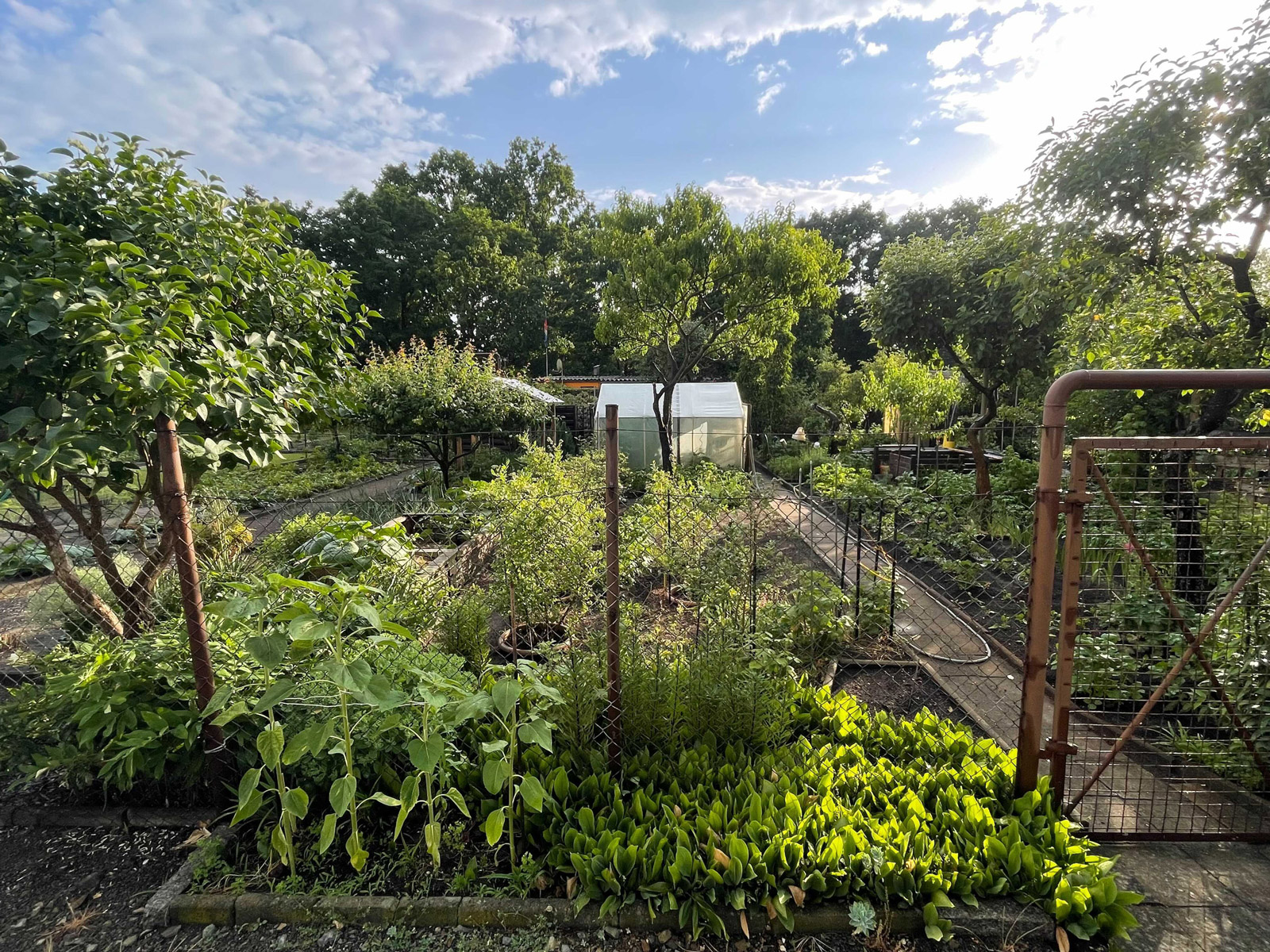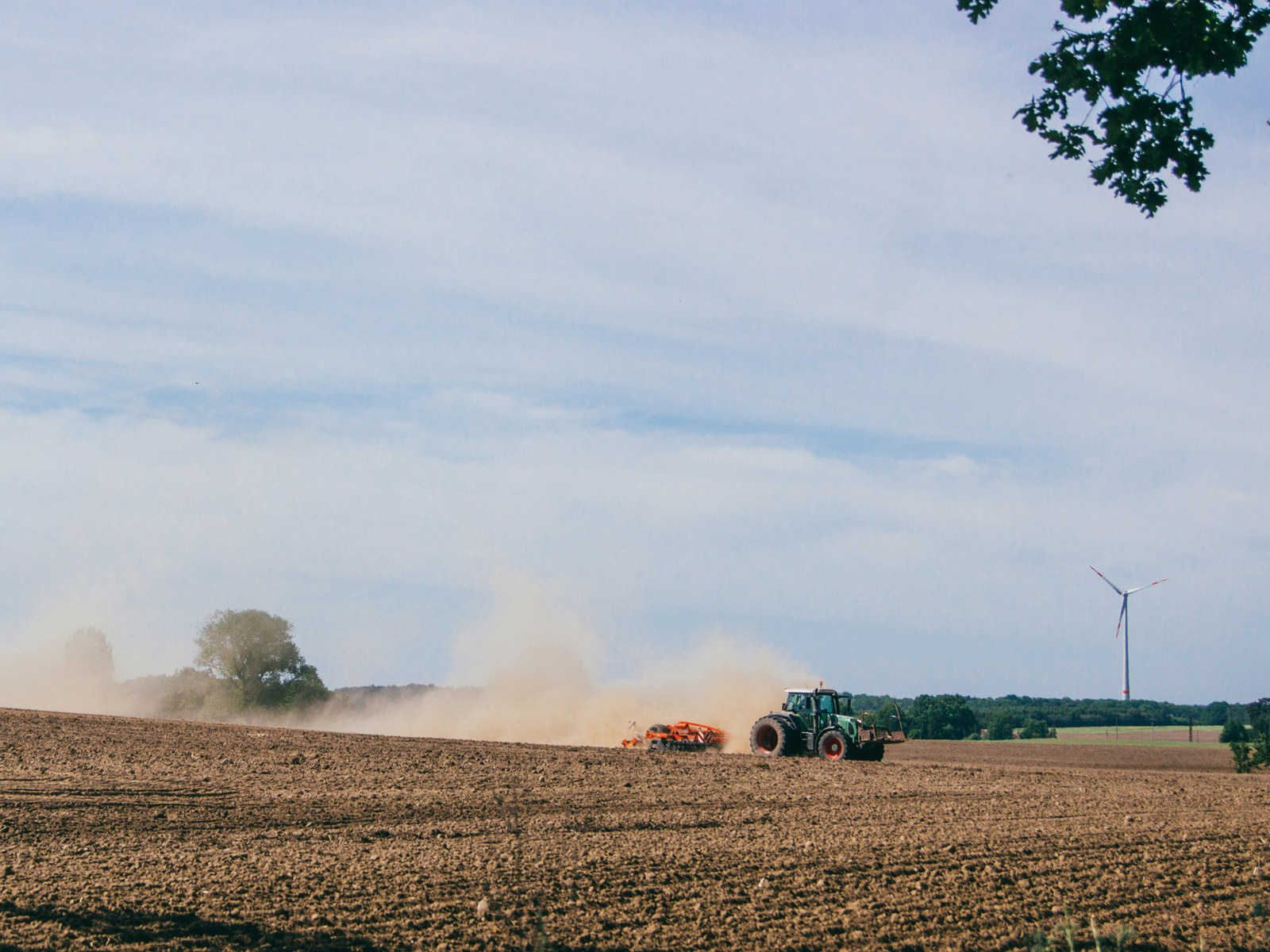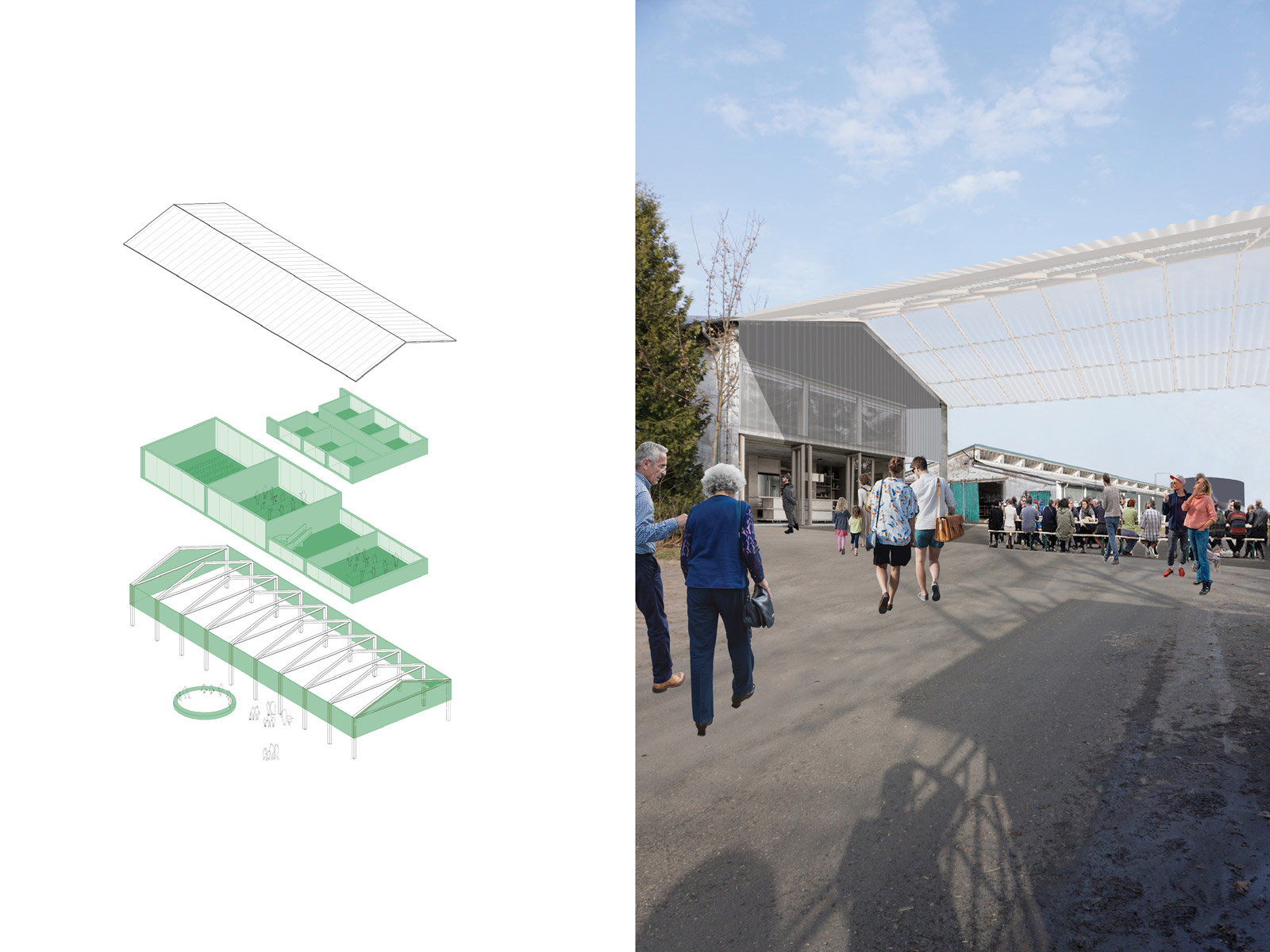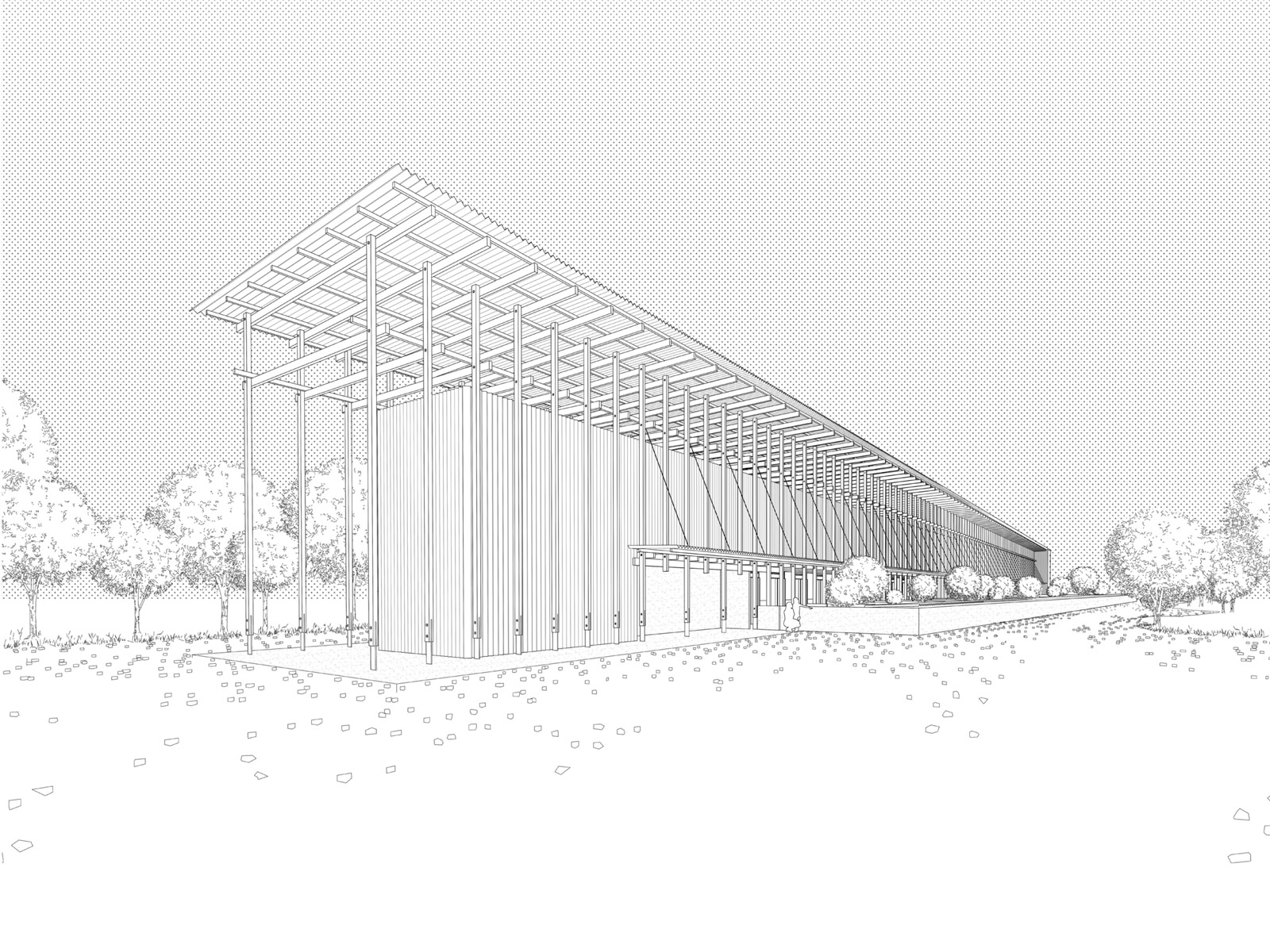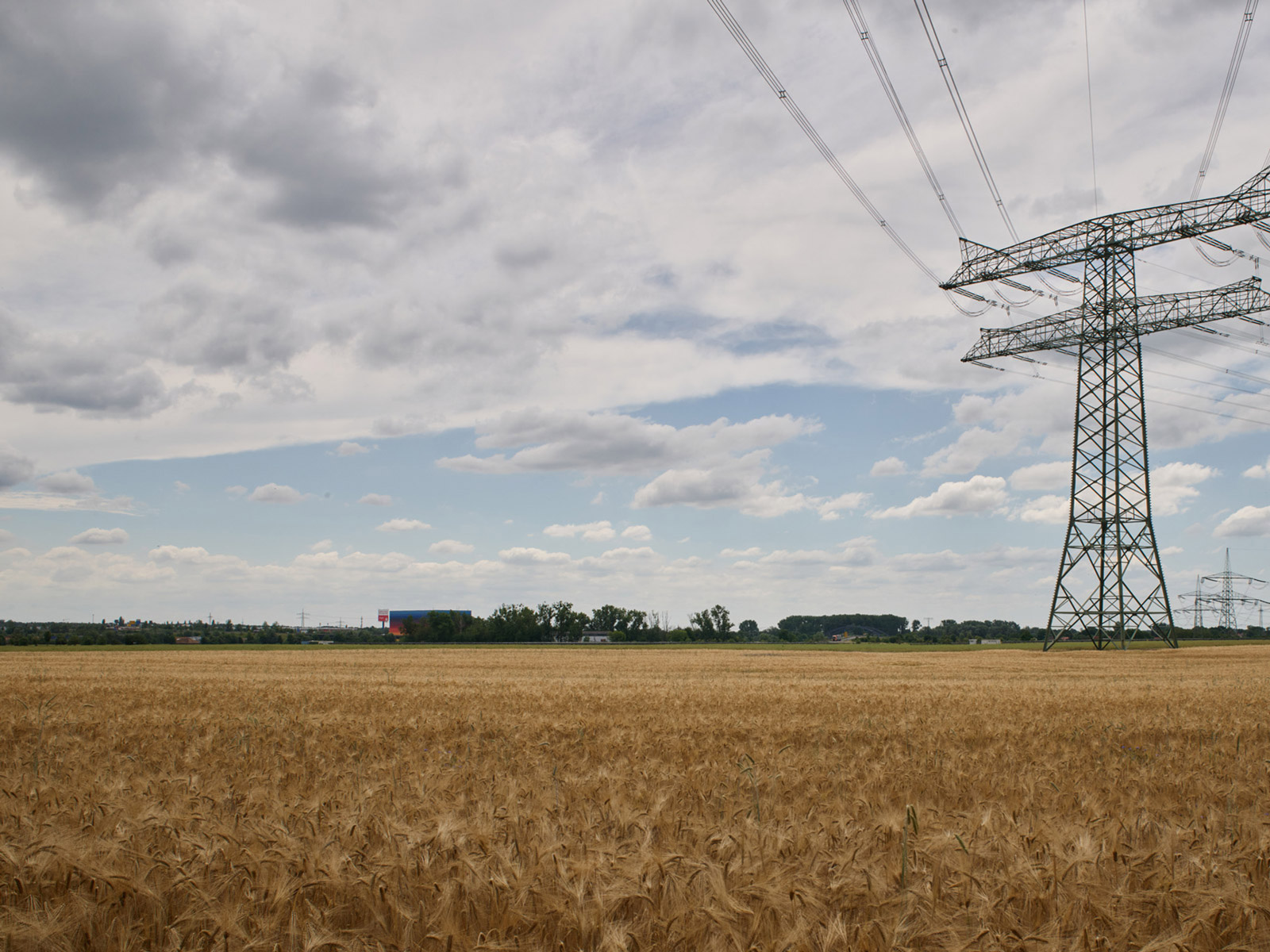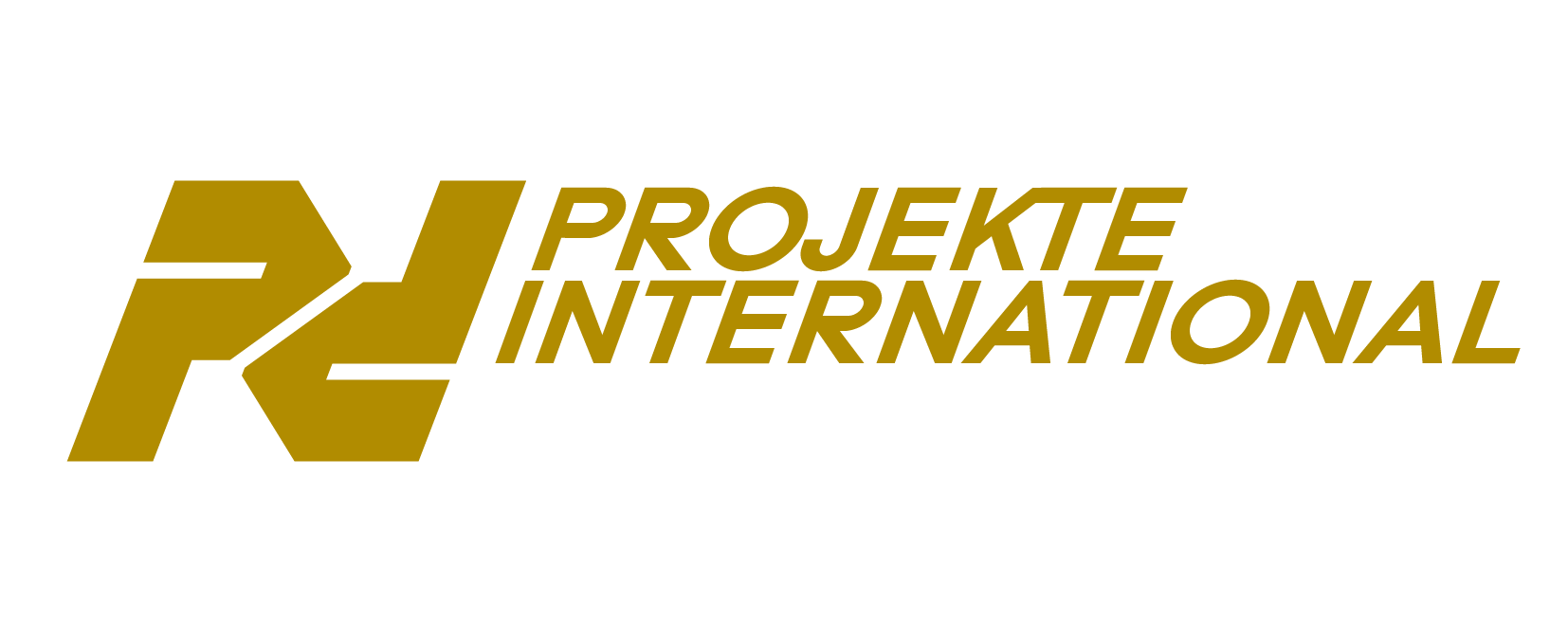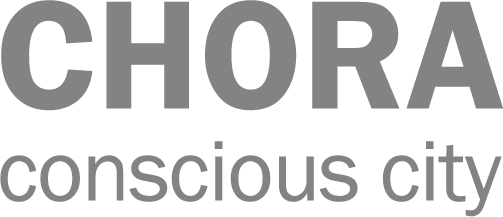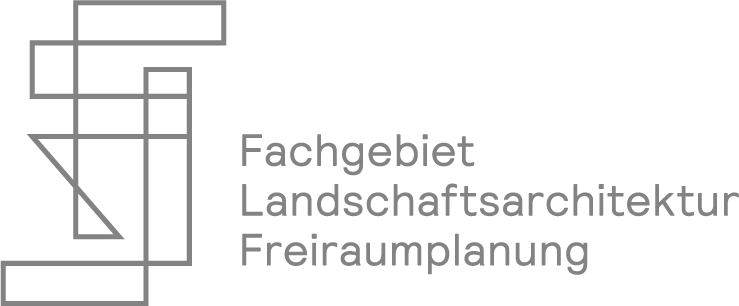INFRASTRUCTURE! Thesis
We are what we eat
By: BB2040 Editorial Team
With contributions from: Klub Kanal, Studio Amore, BB2040 Editorial Team
Published on June 26, 2021
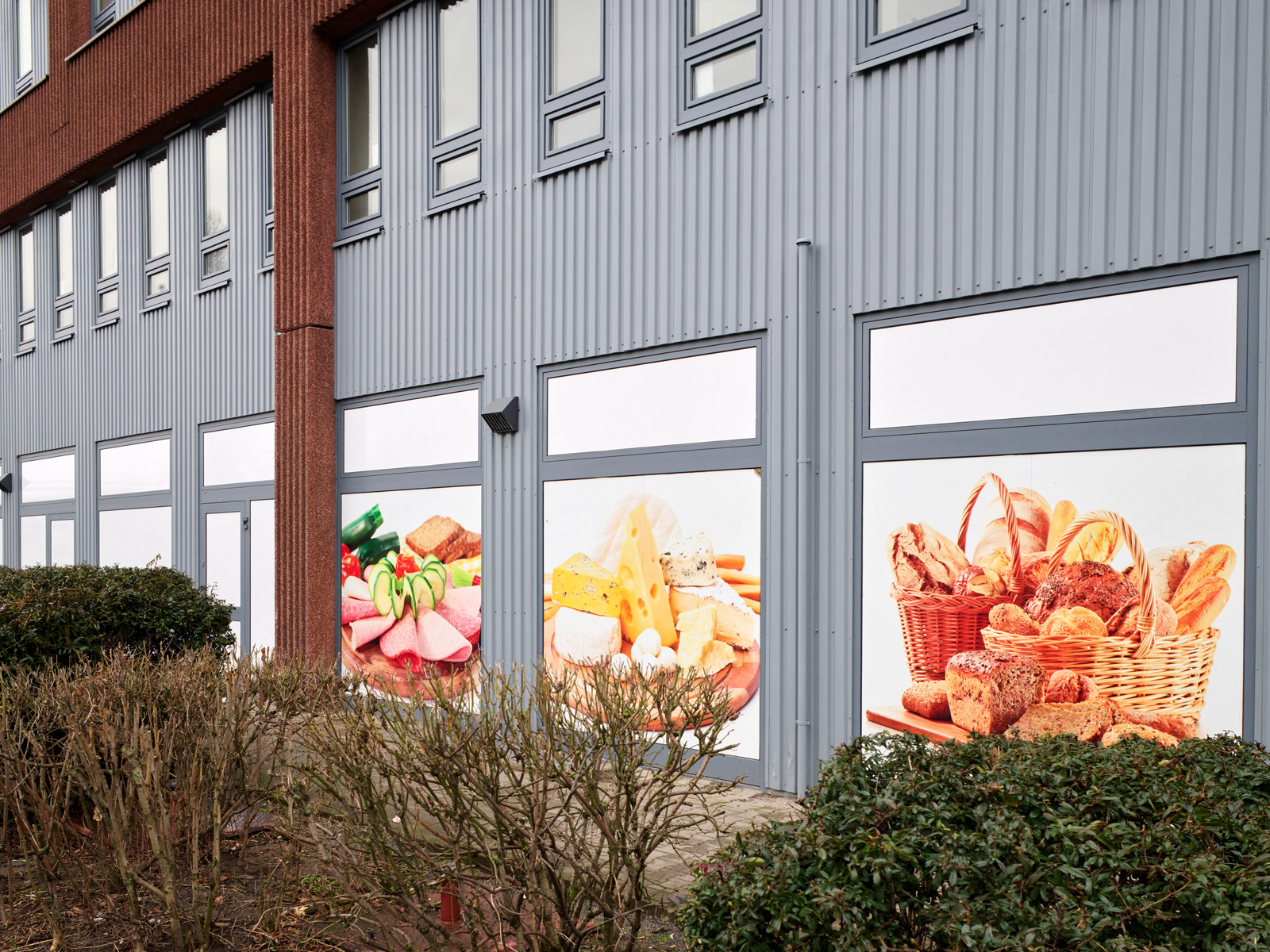
Next to water and air, food is the basis of our subsistence; yet our modern industrialized food system—which characterises Germany’s, and especially Brandenburg’s agricultural landscapes—focuses primarily on increasing production volumes that are commodified through the use of infrastructures, policies and global supply chains. In Brandenburg, roughly half of the surface is farmland, but an incredible 98% of it is for animal feed and energy crops. Due to the unsustainable exploitation of soils we have no more than 60 soil cycles left before agricultural land becomes unproductive. However, food security in the future is not necessarily tied to large quantities of food, but rather to our diet: this will determine land distribution, farm size and soil resilience.
The BB2040 Editorial team is formed by Philipp Misselwitz, David Bauer, Kriti Garg, Rosa Pintos Hanhausen, Simon Warne & Johanna Westermann.
This INFRASTRUCTURE! Thesis is presented at the Wissensstadt Berlin 2021.
We are living in a world of globalized food production. In the 20th century, urbanising countries worldwide moved from self-sufficiency towards a reliance on industrial farming and global supply chains. Urbanisation and industrialisation of the agricultural sector are closely linked. Fewer people were needed to work the land and produce food, triggering vast rural-to-urban migration further fueling urban growth. But also ideology was at play: In the Soviet Block—including the GDR—collectivization was seen as a key to ensure equity and food security which accelerated agricultural industrialization. Smaller plots of land were clustered into large scale lots, animals were raised by the million and farms were turned into factories.
Across the Iron Curtain and until today, agricultural transformation followed a growth paradigm, focusing on increasing production volumes, often by artificially pollinating and/or genetically altering seeds. These lab-engineered kernels are considerably less resistant to weather catastrophes and are highly dependent on fertilizers and pesticides. As a consequence of such intensive use, soil erodes and loses the nutrient source to plants, raising concerns that we might only have 60 harvests left before our current systems make agricultural land unproductive [1]. While we cannot accurately predict this, a shift in our systems is imperative.
Organic farming requires recalibrating the scale of production towards smaller units. In Berlin-Brandenburg, a citizen’s cooperative called Ökonauten e.G. [2], is slowly buying off larger plots of farmland in the region to later parcel and lease them to farmers using organic methods. Considering the depleted soil fertility and the severe droughts repeatedly hitting Brandenburg through global warming, farmland redistribution could form the basis of a more resilient scenario. Ideas on how to achieve this are divided between those who believe in technological fixes, and those who argue that a re-densification of the countryside is needed.
Allotment gardens might sound like a plausible alternative to industrial-scale agriculture, but the scale of what could fit in the city would not suffice to feed the inhabitants. Within Berlin’s city limits, only 5% of the land is dedicated to agriculture due to higher land prices, adding to the argument that, despite our wishful thinking, the city will never feed itself. Between 2007 and 2014, prices for farmland in former East Germany more than tripled due to large investors seeking EU agriculture subsidies from the vast plots of former LPG (Landwirtschaftliche Produktionsgemeinschaft) land. However, compared to the rest of Germany, prices of agricultural land are still comparatively low in Brandenburg due to the problems previously mentioned. Roughly half of Brandenburg’s surface is farmland, yet this is not feeding us directly, as two thirds of it is intended for animal feed production [3]. All these shifts of land use, added to the increased erosion and degradation of the soil, help explain why two thirds of the agricultural land that is actually feeding Germany is located outside of its borders [4].
The fear of food scarcity has actually fueled a heavily subsidized sustained growth with overproduction as a goal. Most of it is sold to other countries, but a lot goes to waste as well. Organisations such as Fairteilung (a wordplay indicating fair sharing) help redistribute excess food among those who do not have access to it. Another consequence—and cause—of the increase in cheap grain production is tied to the meat industry since many hectares of crops are destined for fattening livestock. Since the GDR, meat production has gone from farm to factory to “satisfy” the needs of the people, while taking over the majority of agrarian land for feed production, increasing CO2 emissions, as well as groundwater pollution. Along come ethical concerns too, as animals are normally crammed together to be fattened and slaughtered in the intensive livestock farming industry, removing all humanity from the process. Roughly 27 million pigs are being held in German factories today [5]—3% of which are in Brandenburg [6]. Even when Germans eat less meat than before, more is being produced to be exported, highlighting the impact of today’s supply chains and the importance of a systemic approach to these problems. Globally, Germany is one of the largest pork exporting countries [7].
What we eat will determine the land distribution and farming size; which will invariably have an impact on the world’s biodiversity [8]. However, changing these habits will not be a simple task. Parliament of food, a forum capable of challenging the city's role in the unequal distribution, environmental degradation and unsustainable production found within existing global food supply chains is one of the proposals on the table. We will need many more to help us renegotiate the way we farm, what we farm and how we consume, as well as understand the compromises that will have to be made.
[1] RITCHIE, H (2021) Do we only have 60 harvests left? Soil Lifespans. Our Wold in Data. https://ourworldindata.org/soil-lifespans
[Accessed 24.05.21]
[2] Ökonauten e.G. https://www.oekonauten-eg.de/ [Accessed 24.05.21]
[3] Landesregierung Brandenburg (2021) Im Vergleich. Agrarstruktur. Land Brandenburg. https://agrarbericht.brandenburg.de/abo/de/start/agrarstruktur/im-vergleich/ [Accessed 16.06.21]
[4] BIRGER, N (2013) Deutschland ist abhängig von Agrarfeldern im Ausland. Welt+. https://www.welt.de/wirtschaft/article119159181/Deutschland-ist-abhaengig-von-Agrarfeldern-im-Ausland.html [Accessed 16.06.21]
[5] Schweinehaltung in Deutschland. Tier: Schweine. Bundesanstalt für Landwirschaft und Ernährung. https://www.praxis-agrar.de/tier/schweine/schweinehaltung-in-deutschland/ [Accessed 24.05.21]
[6] (2020) Pressemitteilung. Amt für Statistik Berlin-Brandenburg.
https://www.statistik-berlin-brandenburg.de/pms/2020/20-12-17a.pdf [Accessed 24.05.21]
[7] Thünen-Institut (n.d). Nutztierhaltung und Fleischproduktion in Deutschland. https://www.thuenen.de/de/thema/nutztiershyhaltung-und-aquakultur/nutztierhaltung-und-fleischproduktion-in-deutschland/ [Accessed 21.06.2021]
[8] HARTEMINK, A. E. (2005). Plantation Agriculture in the Tropics: Environmental Issues. Outlook on Agriculture, 34(1), 11–21. https://doi.org/10.5367/0000000053295150
BB2040
[EN] Berlin Brandenburg 2040 was initiated by the Habitat Unit in cooperation with Projekte International and provides an open stage and platform for multiple contributions of departments and students of the Technical University Berlin and beyond. The project is funded by the Robert Bosch Foundation.
[DE] Berlin Brandenburg 2040 wurde initiiert von der Habitat Unit in Kooperation mit Projekte International und bietet eine offene Plattform für Beiträge von Fachgebieten und Studierenden der Technischen Universität Berlin und darüberhinaus. Das Projekt wird von der Robert Bosch Stiftung gefördert.
